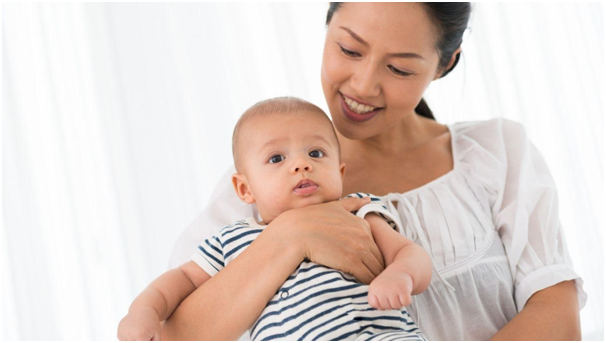How to prevent the development of food allergies in your baby

If you’re a young parent you have probably understood that every baby’s organism is quite a sensitive thing that reacts in a special way. You won’t know if your child is prone to allergies or not until you give a certain ingredient that can cause a negative reaction. Allergic reactions can be quite different from redness on the skin to breathing problems. The last one is of course very disturbing and frightening. Therefore, you should follow some simple rules that can reduce the likelihood of food allergies in your baby and hopefully it will protect you from experiencing that. Let’s consider them closer.
Maybe one of the most common piece of advice on how to prevent the development of food allergies is to breastfeed your little one for the first half a year.
It’s not a secret that breastmilk is the most suitable and beneficial food for babies. It not only enriches your little one with all the necessary nutrients for timely growth and wellbeing, but also transfers antibodies from mother’s body to the child. They protect the little one from different infections and diseases and build strong immunity. In its turn, it will help to be more resistant to allergies.
When your little one is entering the stage of introducing solid foods, this causes some doubts in parents. Baby’s diet usually includes fruits (bananas, apples, pears), berries, vegetables (potatoes, tomatoes, beetroots, carrots, greens), cereals, meat, dairy products. With the beginning of this period, parents can identify whether the child has an allergy to a certain product or not.
What products most often cause an allergic reaction?
Usually, foods such as eggs, fish, soy, wheat, milk, nuts, peanuts, and citrus fruits can cause adverse reactions in babies. But this definitely does not mean that all these products are harmful and your child will not like them.
You just need to keep these simple rules in mind:
- Pregnant and breastfeeding mother’s don’t need to avoid these products in order to protect their babies. There is no evidence that avoidance of allergens prevents negative reactions in babies. On the contrary, it’s even necessary to consume a wide range of foods while being pregnant or breastfeeding. That way, mothers prepare the child’s body to accept this food and make it more stable and strong. Moreover, there are some foods that can even reduce allergy risk during pregnancy. There are vegetables, fruit, fish, legumes, nuts and whole grains among them.
- Introduce some allergens to your child’s diet but in a careful way. If your little one will take it in small portions and with intervals, he or she will be able to tolerate it easily. Otherwise, not getting these ingredients at all, the child will be at greater risk of food allergies.
- Do not rush to give all these products at once. When introducing a new ingredient, parents should wait some time for the body to show its reaction to it. Acquaint your child with new food gradually. You can wait 5-7 days after the child tries the product for the first time, and then give a new one.
- There are even food additives that can provoke allergies such as colorings and flavourings and other chemical elements. These are only ingredients that you need to try to avoid. They are not healthy at all, and your little one doesn’t need it, especially during the first years of life.
If your little one shows any allergy symptoms such as red and itchy skin, swelling of the eyes, tongue or lips, fainting, weakness, diarrhea or cough don’t ignore that and consult a doctor. Negative reactions can be quite different, so your pediatrician’s phone number needs to be near at hand. Don’t wait until the problem fades away, it is better to get useful advice from a doctor so that the child can easily overcome it.